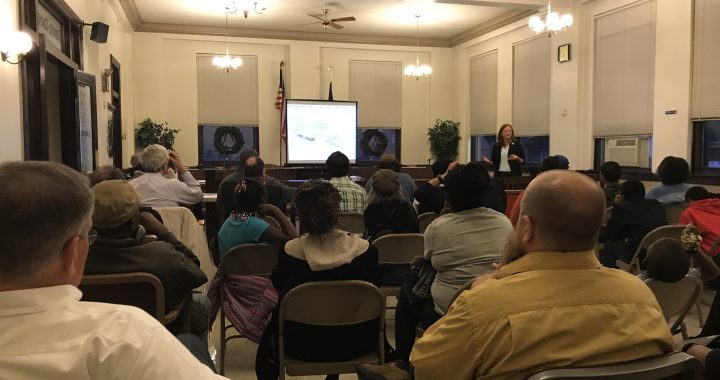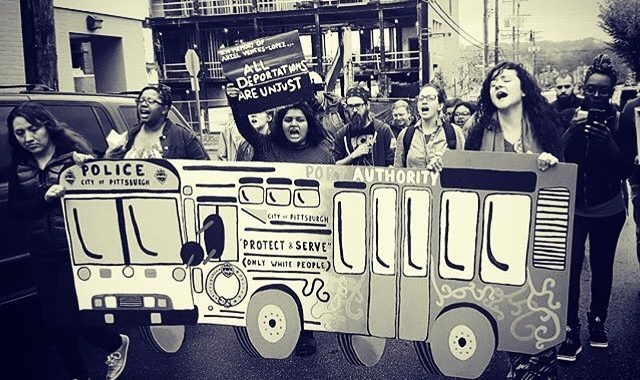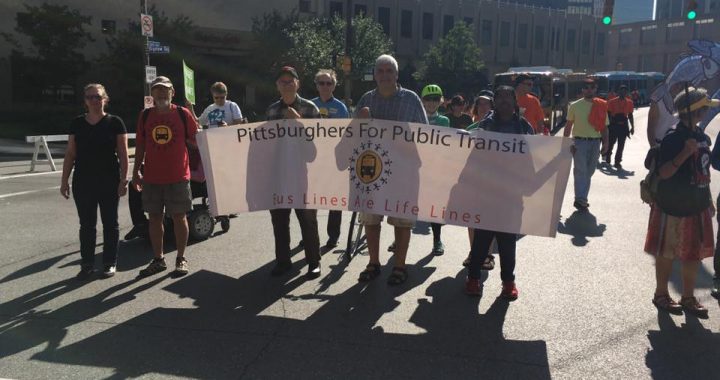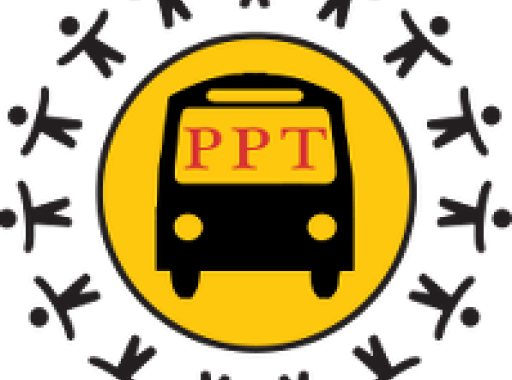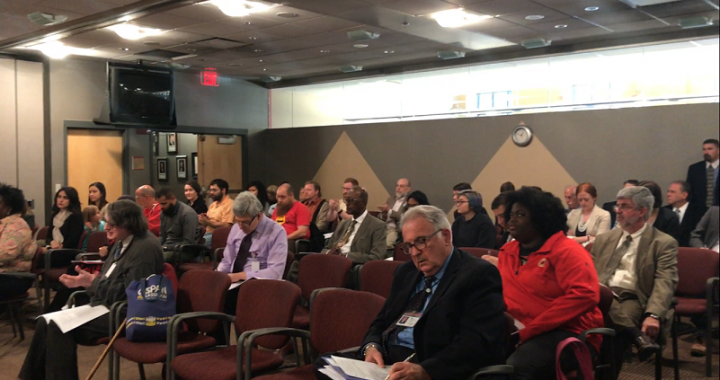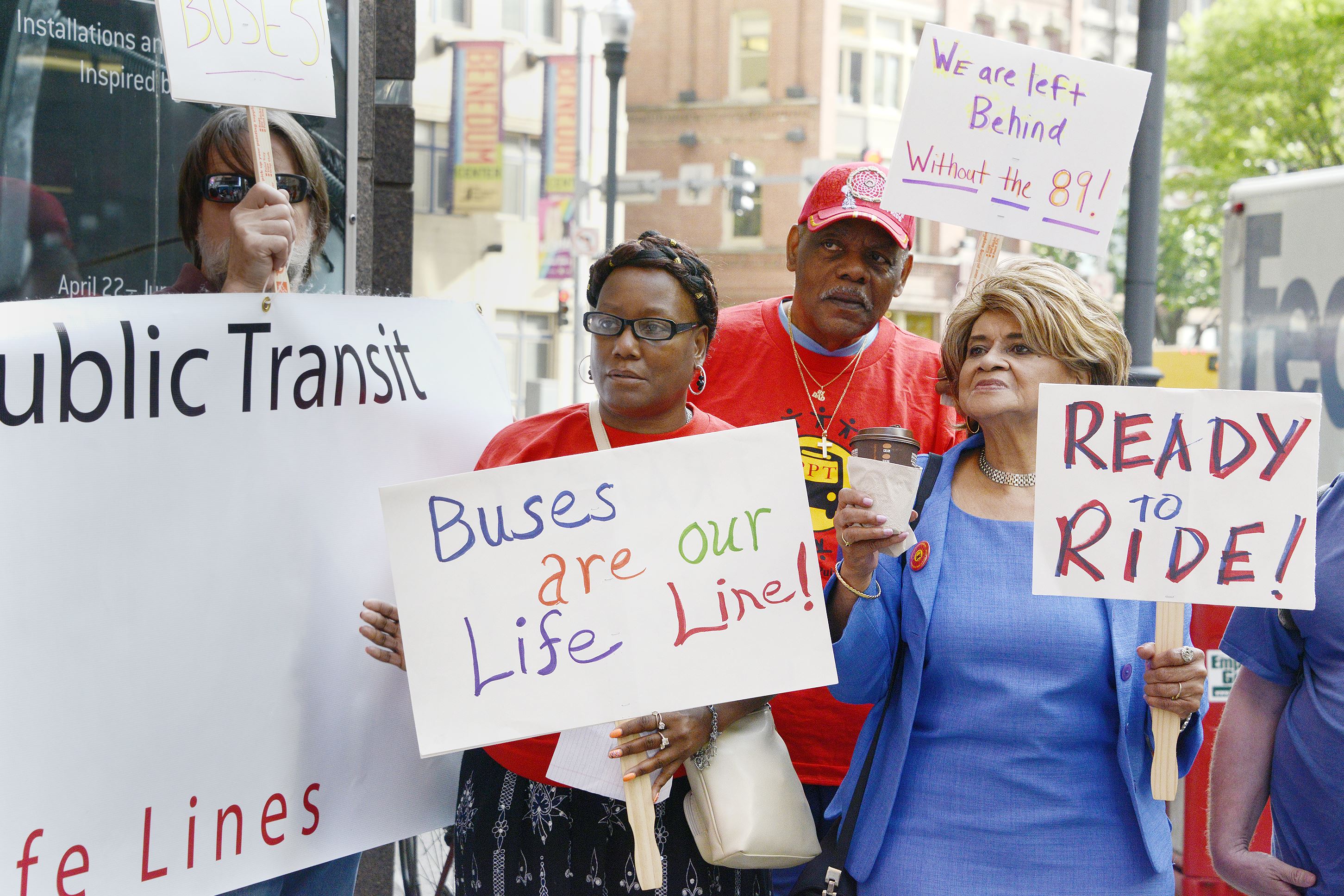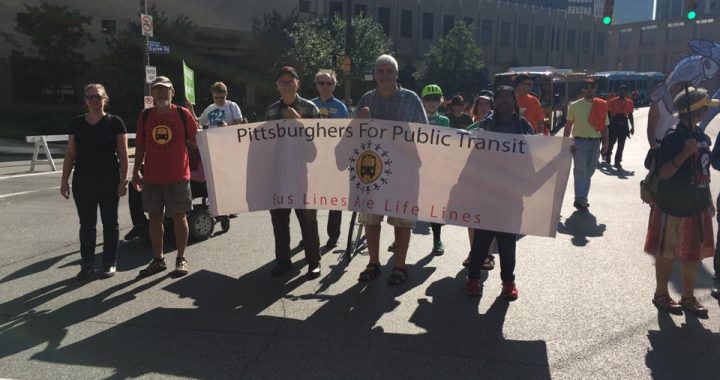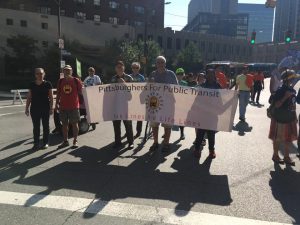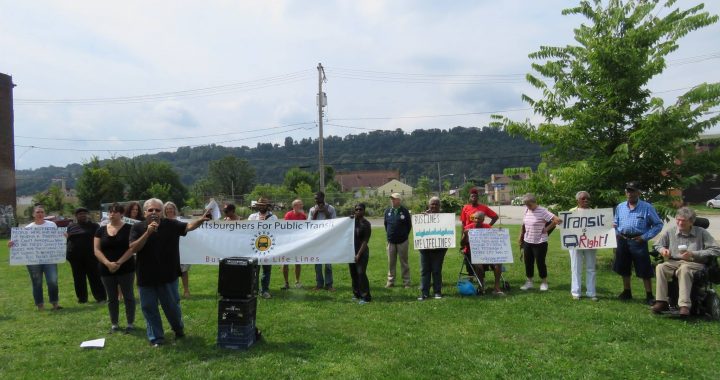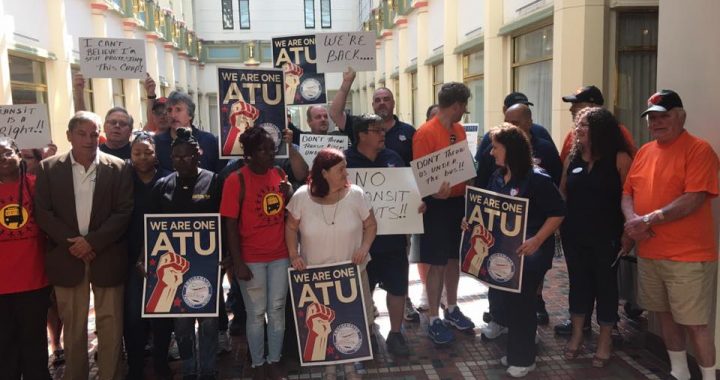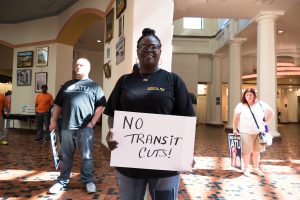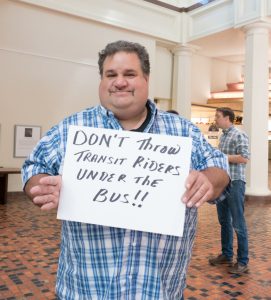September 29th, 2017
Great testimony today at the Port Authority board meeting about why we should not have criminal penalties and Port Authority police doing fare enforcement on the T! Speakers included representatives from The Women and Girls Foundation, Aryse, PIIN, Urban Kind, Fight for LIfers West, LCLAA, the Center for Independent Living and Beechview Area Concerned Citizens.
Additionally, groups that signed onto a letter of support for a civil enforcement process include:
The Hill District Consensus Group
Restaurant Opportunities Center of Pittsburgh
One PA
ACCESS Mob
Pennsylvania Immigration and Citizenship Coalition (PICC)
Bhutanese Community Association of Pittsburgh
Allentown CDC
Zone Three Public Safety Council
Bloomfield Livable Streets
Bike Pittsburgh
See the letter below:
To: Port Authority of Allegheny County
We are writing to demand that the Port Authority of Allegheny County halts the implementation of their fare enforcement policy – “the proof of payment system” – on the light rail, until public concerns have been adequately addressed.
Our concerns for the implementation of the currently proposed proof of payment policy can be summarized as follows. For the black and brown community, we know that even police officers with the best of intentions practice racial profiling (selective enforcement). Across the country, requiring armed police to have thousands of extra encounters with the public a week has proven to result in unnecessary confrontations and use of force incidents. These disproportionately impact black and brown communities. There have been incidents involving Port Authority police in the past, including but not limited to the murder of Bruce Kelley, Jr. and a confrontation with Somali youth downtown. Many communities still remember the recent and tragic deaths of Oscar Grant and Chad Robertson at the hands of transit police in their own cities.
For the immigrant community: when police run their names to check for prior fare violations, this can trigger contact with Immigrations and Customs Enforcement, and begin an unjust and destructive process of detainment and deportation. No one should be detained and deported for the suspicion of failing to pay a $2.50 fare. The recent case of Ariel Vences-Lopez having his immigration status questioned by Metro Transit Police in Minneapolis led to Mr. Vences-Lopez being detained by I.C.E. and scheduled for deportation.
For youth: many students ride the T to school and after-school activities everyday. If they forget their bus pass 3 times, they are subject to both a Theft of Services and Criminal Trespass charge, which will result in a $300 fine or arrest. In NYC, 70% of arrestees were 16-17 years old. This will worsen the school-to-prison pipeline, lead to constitutional rights violations and future ACLU lawsuits.
In regard to those with mental health challenges, or intellectual disabilities: those with disabilities often respond in ways that police have misinterpreted as threats or defiance, and police have unnecessarily responded with force, leading to injury and death.
Finally, for the poor: this proposal results in the criminalization of an everyday necessity.
We support a civil fare enforcement process, where a civilian “fare ambassador” checks for fare payment, and writes a citation if someone cannot prove payment after several offences. Those citations would ultimately go to a bill collector, similar to the process that the Pittsburgh Parking Authority and Southwest PA Turnpike Commission follow. In addition, we believe that the Port Authority should have a policy limiting coordination and communication with ICE, should implement rigorous racial bias training for Port Authority Police and fare ambassadors, and have transparency and accountability with enforcement data.
There is ample evidence that demonstrates that the U.S. cities that have civilian fare checkers- with non-police powers- do not have a high rate of fare evasion. Our coalition is not proposing to duplicate any of these example cities’ fare enforcement practices entirely, but follow the best proof-of-payment practices that the Transit Cooperative Research Program of the Federal Transit Administration identifies: namely, to have a customer service approach rather than a traditional policing approach. It is important to note that concern over fare evasion is not the reason why PAAC is considering implementation of Proof-of- Payment. The only goal of the proof of payment is to increase efficiency, by allowing riders to board at any door on the T, without waiting in line to pay the driver or off-board fare collector. This goal would be accomplished regardless of whether or not enforcement were performed by Port Authority police or civilian fare ambassadors, and whether or not fare evasion had civil or criminal consequences, without any of the harm we foresee happening under the Port Authority’s current policy proposal.
Sincerely,
The Hill District Consensus Group
Restaurant Opportunities Center of Pittsburgh
One PA
ACCESS Mob
Pennsylvania Immigration and Citizenship Coalition (PICC)
Bhutanese Community Association of Pittsburgh
Allentown CDC
Zone Three Public Safety Council
Bloomfield Livable Streets
Bike Pittsburgh
LCLAA
Fight for Lifers West
